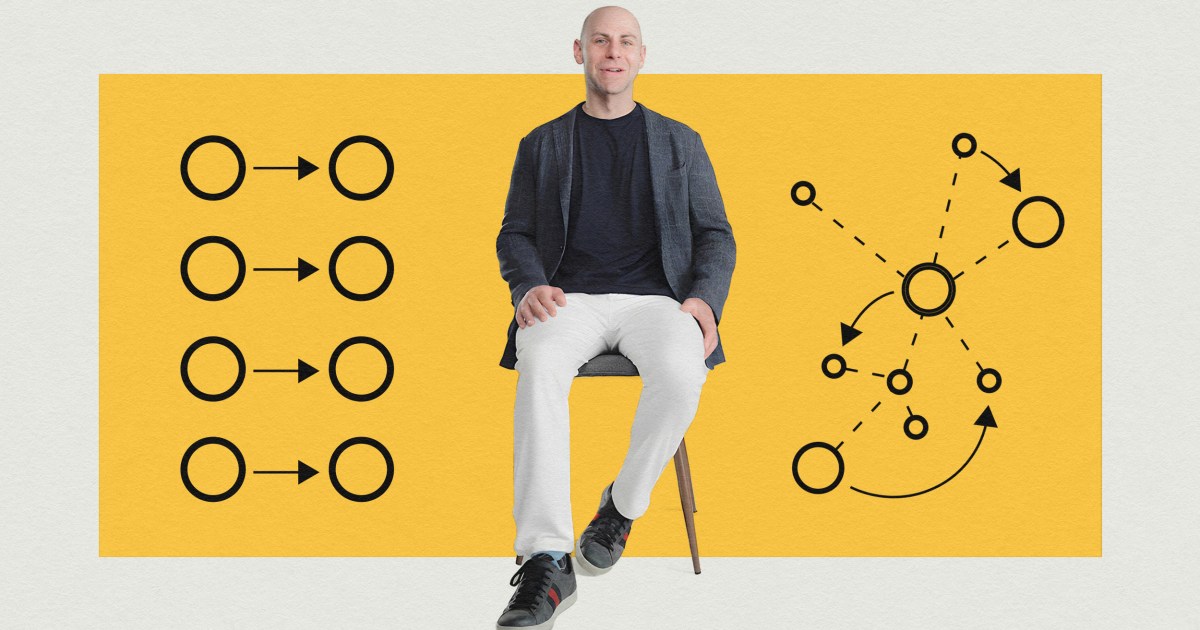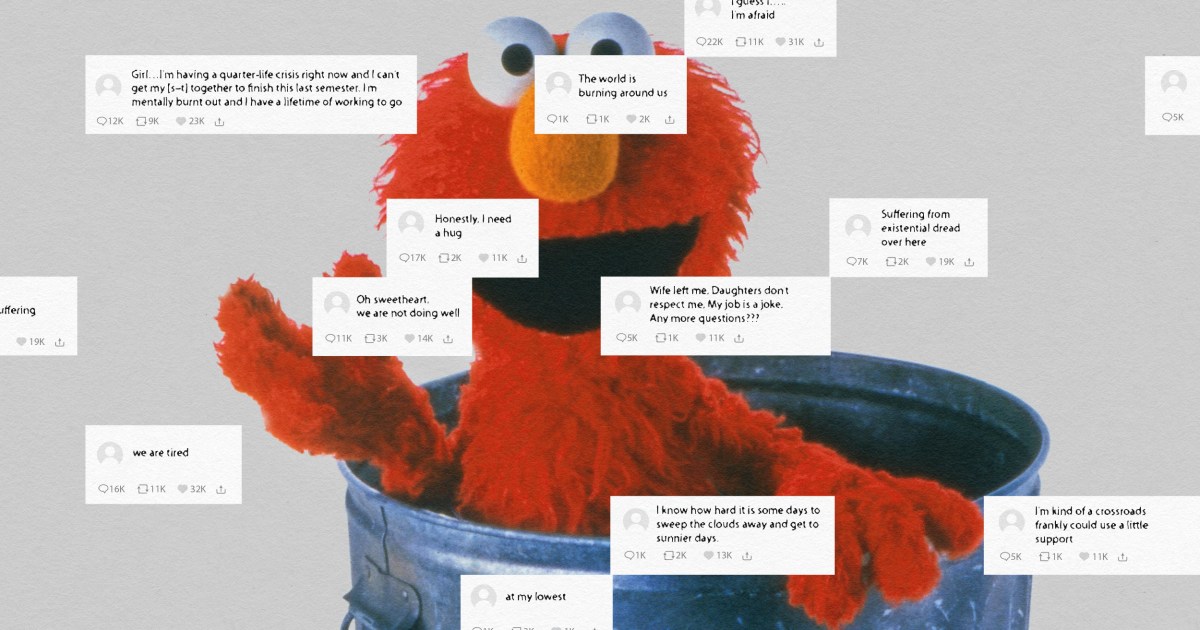-
Today's Most Critical Workplace Challenges Are About Systems - Harvard Business Review (No paywall)
 Critical workplace issues — e.g., the problematic quality of leadership within organizations, the threats to employee mental health and well-being, and the lack of belonging and inclusion — are primarily attributable to systemic factors embedded in organizational cultures and processes. And yet, many of these and other issues are still mainly addressed on the individual level. Why do organizations keep investing in remedies that don’t work and have little chance of working? An automatic bias in how we perceive and explain the world is a likely culprit. The author explains how that “superbias” manifests — and what leaders can do to combat it in their organizations.
Critical workplace issues — e.g., the problematic quality of leadership within organizations, the threats to employee mental health and well-being, and the lack of belonging and inclusion — are primarily attributable to systemic factors embedded in organizational cultures and processes. And yet, many of these and other issues are still mainly addressed on the individual level. Why do organizations keep investing in remedies that don’t work and have little chance of working? An automatic bias in how we perceive and explain the world is a likely culprit. The author explains how that “superbias” manifests — and what leaders can do to combat it in their organizations.
Continued here -
Should You Quit Your "Meh" Job? Or Is It Salvageable? - Harvard Business Review (No paywall)
 Bad days at work are inevitable, just as some degree of frustration and ennui is bound to be a part of almost any job. In this article, the author shares advice from two experts on what to do if you’re stuck in the gray area of deciding whether your job is merely mediocre (and could potentially improve) or downright soul-crushing (and might require a change). They offer seven questions to ask yourself to help you sort it out: 1) Is the workplace toxic? 2) Do you feel depleted? 3) Are you miserable or are you bored? 4) Is there anything about the job you enjoy? 5) Are you really giving it your best effort? 6) Do you need different friends? 7) Is there anything about the job you enjoy?
Bad days at work are inevitable, just as some degree of frustration and ennui is bound to be a part of almost any job. In this article, the author shares advice from two experts on what to do if you’re stuck in the gray area of deciding whether your job is merely mediocre (and could potentially improve) or downright soul-crushing (and might require a change). They offer seven questions to ask yourself to help you sort it out: 1) Is the workplace toxic? 2) Do you feel depleted? 3) Are you miserable or are you bored? 4) Is there anything about the job you enjoy? 5) Are you really giving it your best effort? 6) Do you need different friends? 7) Is there anything about the job you enjoy?
Continued here -
A Russian airline that ditched an Airbus A320 in a Siberian wheat field last year is abandoning plans to rescue the jet - Business Insider (No paywall)
A low-fuel situation forced the pilots to ditch the A320 in a Siberian wheat field seven months ago, and now its getting scrapped for good.
Continued here -
I was put on a performance-improvement plan, so I chose to retire at 58. Sometimes I wish I wasn't a young retiree. - Business Insider (No paywall)
An employee quit her job after being put on a PIP. She struggled to find new work, so she retired. Sometimes she wishes she could have kept working.
Continued here -
5 things that are hard to get even if you're pretty rich - Business Insider (No paywall)
Money sometimes can't buy everything. Exclusive reservations, elusive Birkin bags, and more can remain out of reach for the wealthy.
Continued here -
The idea that matter is mostly empty space is mostly wrong
 One thing you can be sure of, as you measure and observe the Universe around you, is this: the physical objects you see, touch, and otherwise interact with all occupy a volume of space. Whether in the form of solid, liquid, gas, or any other phase of matter, it costs energy in order to reduce the volume that any tangible material occupies, as though the very components of matter themselves are capable of resisting the impetus to occupy a smaller amount of three-dimensional space.
One thing you can be sure of, as you measure and observe the Universe around you, is this: the physical objects you see, touch, and otherwise interact with all occupy a volume of space. Whether in the form of solid, liquid, gas, or any other phase of matter, it costs energy in order to reduce the volume that any tangible material occupies, as though the very components of matter themselves are capable of resisting the impetus to occupy a smaller amount of three-dimensional space.
And yet, seemingly paradoxically, the fundamental constituents of matter — the particles of the Standard Model — occupy no measurable volume at all; they’re simply point particles. So how, then, can substances made out of volume-less entities come to occupy space at all, creating the world and Universe as we observe it? That’s what Pete Sand is curious about, asking:
Continued here -
Want true success? Be more philosophical about "good" and "bad" failure.
 Failing is cool at the moment. This is an era of reframing. A setback isn’t bad; it’s a learning experience. An obstacle shouldn’t bother you; it’s an opportunity to grow. If you’ve read any self-help article written in the last five years, you will often find, at some point, the idea that “failing is necessary for success.” There’s a cottage industry of celebrities and self-help personalities who lionize the great benefits of having to overcome. All will start with a similar refrain: “We live in an age of perfection,” or “We don’t treat failure with respect.” Perhaps a decade ago, but after several years of bestselling books and viral videos, it’s getting harder to uphold that refrain. It could even be argued the pendulum has shifted the other way; this is an age of failure fetishization.
Failing is cool at the moment. This is an era of reframing. A setback isn’t bad; it’s a learning experience. An obstacle shouldn’t bother you; it’s an opportunity to grow. If you’ve read any self-help article written in the last five years, you will often find, at some point, the idea that “failing is necessary for success.” There’s a cottage industry of celebrities and self-help personalities who lionize the great benefits of having to overcome. All will start with a similar refrain: “We live in an age of perfection,” or “We don’t treat failure with respect.” Perhaps a decade ago, but after several years of bestselling books and viral videos, it’s getting harder to uphold that refrain. It could even be argued the pendulum has shifted the other way; this is an age of failure fetishization.
The real problem, though, is that the issue is too often oversimplified. A child getting a bad grade at school or an athlete who doesn’t get their PB might make them better. Yes, some failure means growth, but as the philosopher Jonathan Mitchell argues, the fetishization of failure often overlooks one key thing: sometimes, failure can break you. So how can you tell the difference between “good” and “bad” failure, especially in our daily lives? And how can we shift the pendulum back to somewhere more balanced?
Continued here -
Adam Grant on how to identify and develop high-potential leaders
 The quest to build a robust pipeline of high-potential leadership talent is increasingly urgent as the challenges facing organizations gain in complexity and speed. However, the current leadership gap illustrates how difficult that quest can be.
The quest to build a robust pipeline of high-potential leadership talent is increasingly urgent as the challenges facing organizations gain in complexity and speed. However, the current leadership gap illustrates how difficult that quest can be.
One crucial question must be addressed at the outset: What differentiates high-potential leadership talent from high-performing professionals more generally? Both are essential to an organization’s success, but each brings unique capabilities.
Continued here -
Everyday Philosophy: "Is there anything wrong with trauma dumping?"
 I have a friend at work; she’s kind of a friend, but only ever a “work friend.” We have lunch together and get along, but nothing more. Lately, she’s started to spend our lunch breaks ‘trauma dumping’ on me. I don’t mind venting or offloading, but this is more than that. It’s too much. It makes me feel uncomfortable, and I find I don’t want to eat with her anymore. Is she wrong to dump trauma on me?”
I have a friend at work; she’s kind of a friend, but only ever a “work friend.” We have lunch together and get along, but nothing more. Lately, she’s started to spend our lunch breaks ‘trauma dumping’ on me. I don’t mind venting or offloading, but this is more than that. It’s too much. It makes me feel uncomfortable, and I find I don’t want to eat with her anymore. Is she wrong to dump trauma on me?”
Friendships are complicated. In some ways, the term “friend” is such a sprawling, overused word that it’s now become pointless. We have work friends, school friends, home friends, best friends, old friends, new friends, parent friends, couple friends, and so on — each with its own definition and rules of engagement. So, we find Lisa in a thicket, trapped by two related issues. The first is, “What kinds of friendships allow what kinds of behaviors?” and, second, “When, if ever, is ‘trauma dumping’ acceptable?”
Continued here -
25 years since Columbine: We're closer to decoding mass-shooter psychology
 At roughly 11:19 a.m. on April 20, 1999, 18-year-old Eric Harris and 17-year-old Dylan Klebold emerged from their vehicles in the parking lots of Columbine High School. Clad in black trench coats, they started strolling toward the school entrance. Klebold lobbed a pipe bomb. Then the duo brandished guns and started shooting.
At roughly 11:19 a.m. on April 20, 1999, 18-year-old Eric Harris and 17-year-old Dylan Klebold emerged from their vehicles in the parking lots of Columbine High School. Clad in black trench coats, they started strolling toward the school entrance. Klebold lobbed a pipe bomb. Then the duo brandished guns and started shooting.
Armed with a TEC-9 semi-automatic pistol, two shotguns, a carbine, as well as dozens of pipe bombs and mounds of ammunition in a bag they were lugging, the two were out to kill hundreds of their classmates.
Continued here
Saturday 20th April 2024
Top stories this week